US Olympic Athletes Didn't Get Zika, But Did Return With Other Mosquito-Borne Illnesses
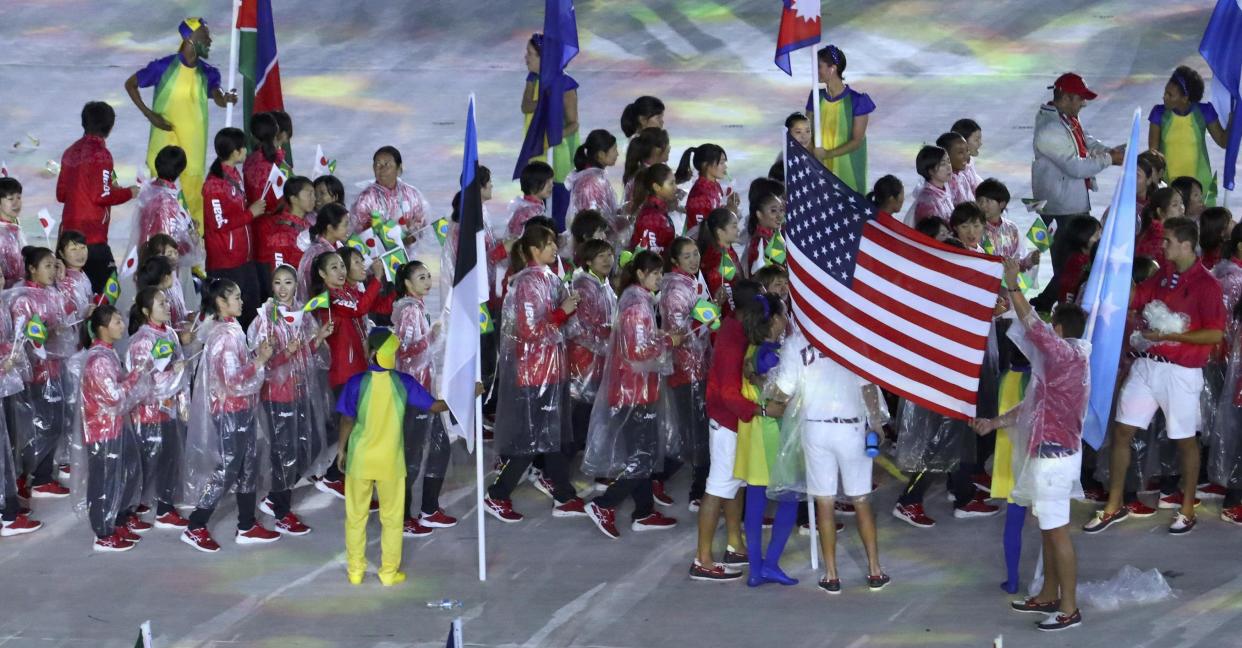
Athletes who had qualified for the 2016 Olympics faced a difficult choice. Earlier that year, the World Health Organization had declared a global public health emergency around Zika virus and its link to horrific birth defects, the epicenter of which was in Olympics host country Brazil. Should athletes, most of whom were of reproductive age, skip an event for which they had trained for years? Or should they plunge forward, despite some warnings from public health experts?
It turns out that Zika virus was a smaller risk than many thought it would be, but athletes were not spared the consequences of other mosquito-borne viruses. Researchers from the University of Utah Health found that while no one on the U.S. teams, or their support staff, contracted Zika virus, a small minority of people tested positive for less mysterious, but similarly serious, viruses like West Nile, Dengue and Chikungunya, which can be passed along by the same mosquito that transmits Zika.
“Everyone was concentrating on Zika and ignoring that there could be other infections caused by mosquito bites,” said researcher Dr. Krow Ampofo, in a statement about the study. “We did not expect to find so many with these other infections.”
The findings align with a smaller study on 117 team members from Spain, who all tested negative for Zika after the Olympic games were over, as well as a larger WHO survey that didn’t turn up a single Zika case among athletes or visitors in Brazilian health facilities immediately after the events. However, Ampofo’s is the most wide-ranging analysis, in that it tested for more mosquito-borne viruses beyond Zika.
He planned to present the unpublished results Saturday at IDWeek, a national infectious disease conference in San Diego.
Of the approximately 2,000 athletes, coaches and support staff who traveled to Rio from the U.S. last year, 457 of them provided the university with blood samples both before and after the Olympic games. The participants also filled out a survey about what they had done in Brazil, where they had traveled, and what kinds of precautions they had taken against mosquito bites.
None tested positive for Zika, but seven percent of the participants had become infected with other mosquito-borne illnesses: West Nile virus (27 cases), Chikungunya (3 cases) and Dengue (2 cases).
Researchers alerted all 32 people who tested positive for one of these diseases, and solicited surveys about their symptoms. Of the 12 people who responded, only three reported mild symptoms, while the rest had no symptoms at all.
While these results may seem as if the global anxiety over Zika at the Olympics was much ado about nothing, Ampofo told HuffPost that the world was truly witnessing an unprecedented, fast-moving epidemic, made all the more frightening by a lack of understanding about how it caused severe birth defects.
“I don’t think it was blown out of proportion,” said Ampofo. “It’s just that everybody had to take the necessary precautions in the absence of information of what it was going to be like at the time of the Olympic games.”
A contributing factor to the lack of Zika virus cases among U.S. participants may have been the fact that because the Olympics took place during Brazil’s winter, mosquito bite risk was lower than it had been at the height of the Zika epidemic. But as the 32 cases of other viruses show, the risk wasn’t zero.
Ampofo also noted that there was one behavior that unified most of the study participants who had gotten a mosquito-borne infection.
“When we looked at the data, those who developed an arbovirus infection were less likely to adhere to the preventive measures that were recommended before they went, especially using mosquito repellant,” he said ― a lesson for international travelers.
The U.S. Centers for Disease Control and Prevention has published guidelines on how to prevent mosquito bites, and updates a count of countries and territories where Zika virus is still a risk.
Symptoms for the other three viruses can vary substantially. Most people who contract West Nile Virus will have no symptoms at all, but in about one out of every 150 cases, the infection can lead to encephalitis or meningitis.
Meanwhile, Dengue, which is also known as breakbone fever, can come with severe head and eye pain, muscle and joint pain, and a rash. It can also progress to dengue hemorrhagic fever, or severe dengue, which can cause bleeding in the nose or gums, internal bleeding, vomiting and death. There were 2.35 million cases of dengue in the Americas in 2015, according to the WHO. About 10,000 cases progressed to severe dengue, and 1,181 people died.
Finally, Chikungunya causes most people who get the virus to have symptoms like fever, joint and muscle pain, and rash. In some people, the joint pain can last for months and be disabling, according to the CDC, but deaths are rare.
While Brazil declared its Zika emergency officially over in May of this year, thanks in part to a nationwide campaign to eradicate mosquitos, the country is now grappling with the support and care of more than 2,000 babies born with varying disabilities as a result of a Zika infection in the womb, most of whom were born to poor families who live far away from health centers.
In the U.S., 98 babies have been born with birth defects that have a possible link to Zika virus, while that number is 138 among the U.S. territories.
Also on HuffPost
Serena Williams
![U.S. champion tennis player Serena Williams, 34, has admitted that the <a href="http://www.usatoday.com/story/sports/tennis/2016/05/28/serena-williams-rio-summer-olympics-zika-virus/85090386/" target="_blank">Zika virus is weighing on her</a> as the Olympics approaches. <br /><br />"[That’s] something that’s been on my mind,” Williams said to USA Today in May. “I’m really just going to have to go super protected maybe. I don’t know." <br /><br />In a later interview with Glamour magazine, she said, “I’m <a href="http://www.glamour.com/story/serena-williams-the-worlds-greatest-athlete" target="_blank">not taking Zika lightly</a>.”](https://s.yimg.com/ny/api/res/1.2/29fssUxMYkcHFvM2RTxvoQ--/YXBwaWQ9aGlnaGxhbmRlcjt3PTk2MA--/https://img.huffingtonpost.com/asset/5772bc7a1900002500218530.jpg)
"[That’s] something that’s been on my mind,” Williams said to USA Today in May. “I’m really just going to have to go super protected maybe. I don’t know."
In a later interview with Glamour magazine, she said, “I’m not taking Zika lightly.”
Pau Gasol
![Pau Gasol, 35, plays basketball for the Chicago Bulls and competes for Spain in the Olympics. Back in May, he revealed that he and other athletes are concerned about how Zika virus could affect the health of their families and future children. <br /><br />Gasol eventually decided to compete in the Olympics, but <a href="http://www.marca.com/baloncesto/basketfeb/2016/06/25/576d84e6e2704e18728b4651.html" target="_blank">expressed doubts that event organizers are doing all they can</a> to prioritize health in an op-ed for the Spanish publication Marca. <br /><br />"I will be going hoping and trusting that the people and organizations will do everything possible and <a href="http://espn.go.com/olympics/story/_/id/16502784/pau-gasol-announces-play-spain-basketball-team-olympics" target="_blank">take measures to minimize possible risk</a> to the athletes,” wrote Gasol, according to ESPN. "I have always had the doubt that they -- so as not to put other elements of the event in danger -- have not been mindful of the health and safety of the athletes and all those who will attend the Olympics in Rio -- whether those people are athletes, accompanying family, friends or fans. It is a pity that [the situation] is like this.”](https://s.yimg.com/ny/api/res/1.2/2a_DZfWFRbCru0t02O1a6A--/YXBwaWQ9aGlnaGxhbmRlcjt3PTk2MA--/https://img.huffingtonpost.com/asset/5772bc7e1900002500218533.jpg)
Gasol eventually decided to compete in the Olympics, but expressed doubts that event organizers are doing all they can to prioritize health in an op-ed for the Spanish publication Marca.
"I will be going hoping and trusting that the people and organizations will do everything possible and take measures to minimize possible risk to the athletes,” wrote Gasol, according to ESPN. "I have always had the doubt that they -- so as not to put other elements of the event in danger -- have not been mindful of the health and safety of the athletes and all those who will attend the Olympics in Rio -- whether those people are athletes, accompanying family, friends or fans. It is a pity that [the situation] is like this.”
Hope Solo
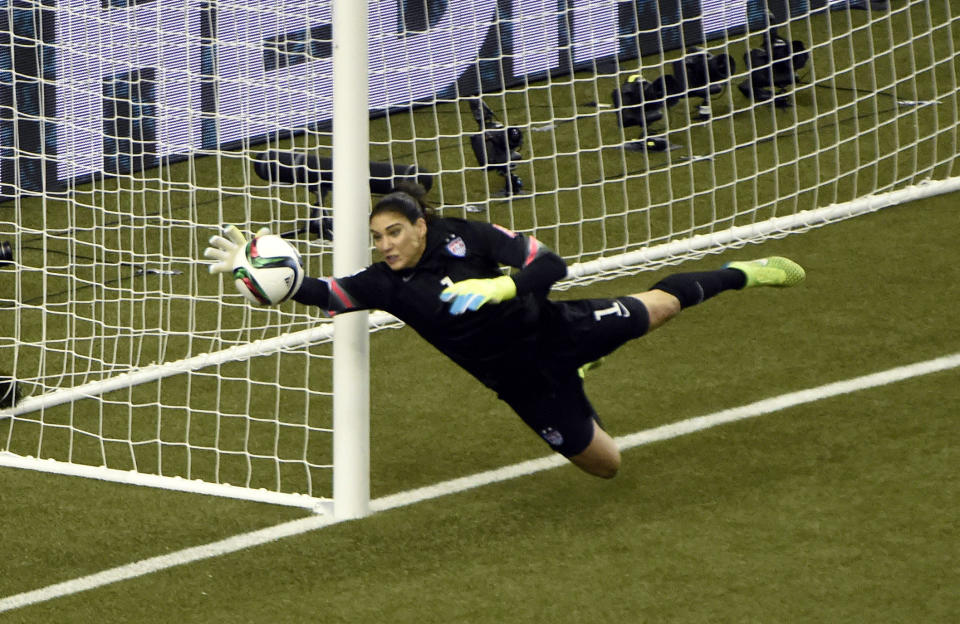
But in May, Solo said that she would “begrudgingly” compete in the Olympics, though revealed that she might not leave her hotel room except to practice or play soccer.
Alex Morgan

"I am concerned, but I really do trust the International Olympic Committee about traveling in Brazil,” Morgan told Health.com in May. "It is kind of scary."
Tejay van Garderen
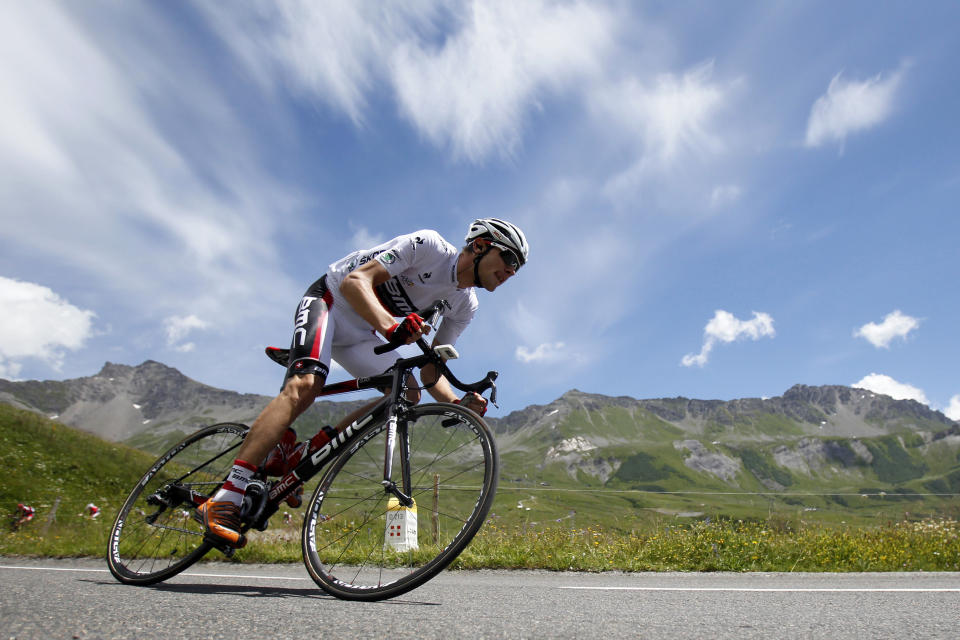
“People are probably going to have different opinions on this,” van Garderen told CyclingTips.com. "I’m sure they will think what they are going to think, but the fact is, if anything were to happen, I couldn’t live with myself.”
At the time of his interview, van Garderen had yet to be selected for the Olympic team, but he had competed in the 2012 Olympics and was a likely pick for Team USA this year, CyclingTips.com explained.
Lee-Anne Pace

"After weighing up all the options and discussing it with my family and team, I have decided that due to the health concerns surrounding the Zika Virus, I will not be participating," the athlete said in a statement released on Twitter. "I hope that everyone can understand that this was a very difficult decision to come to, however my health and my future family's health must come first."
Pace said she was proud to represent South Africa on the LPGA tour.
Marc Leishman

"We have consulted with Audrey's physician and due to her ongoing recovery and potential risks associated with the transmission of the Zika virus it was a difficult yet easy decision not to participate,” Leishman said.
Jason Day
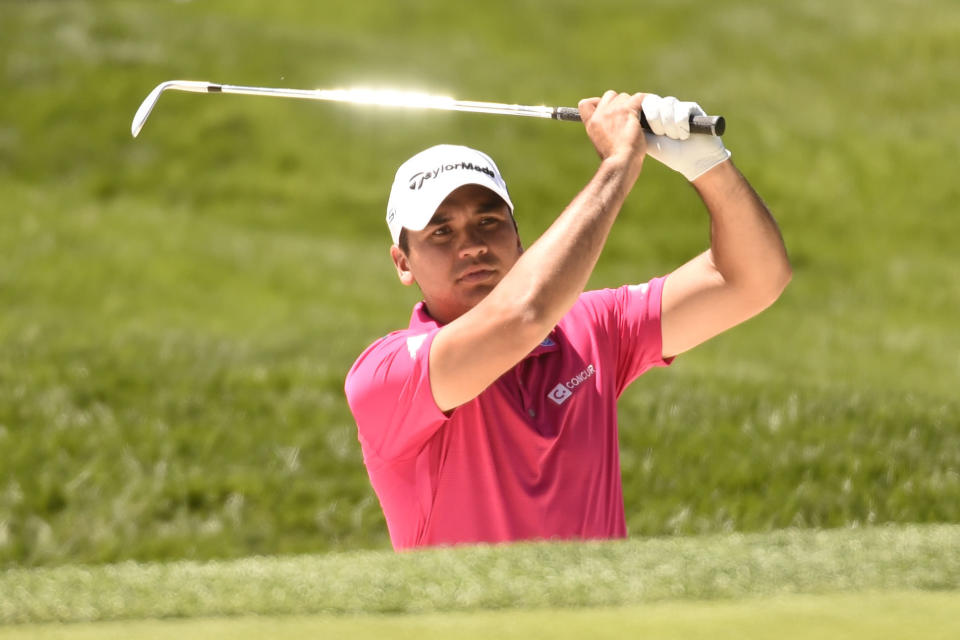
"While it has always been a major goal to compete in the Olympics on behalf of my country, playing golf cannot take precedent over the safety of our family," Day said. "I will not place them at risk."
Vijay Singh
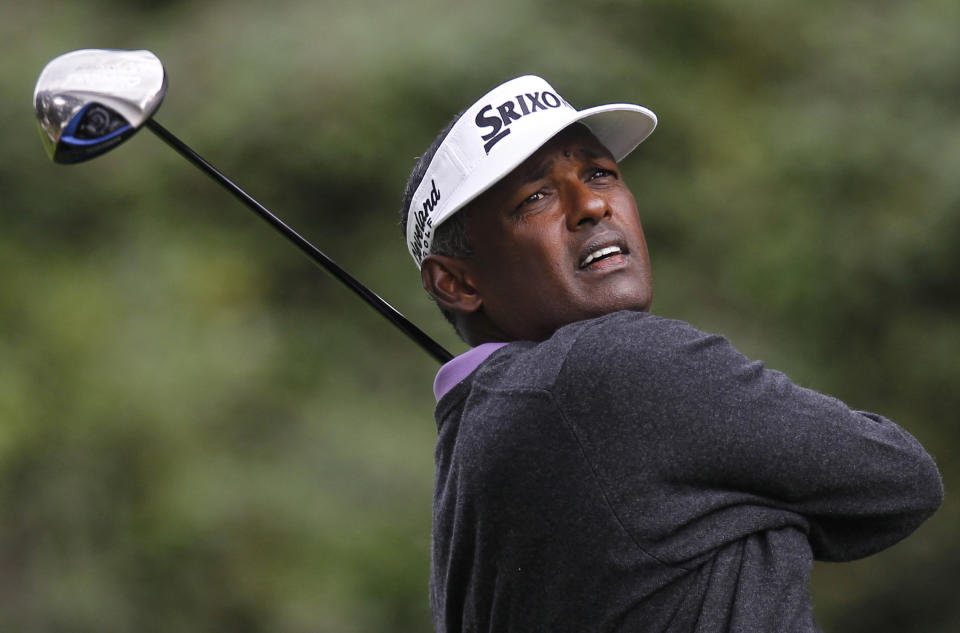
In addition to concerns about Zika, Singh also said that he had to focus on the PGA tour. "I would like to play the Olympics, but the Zika virus, you know and all that crap,” he said.
Charl Schwartzel
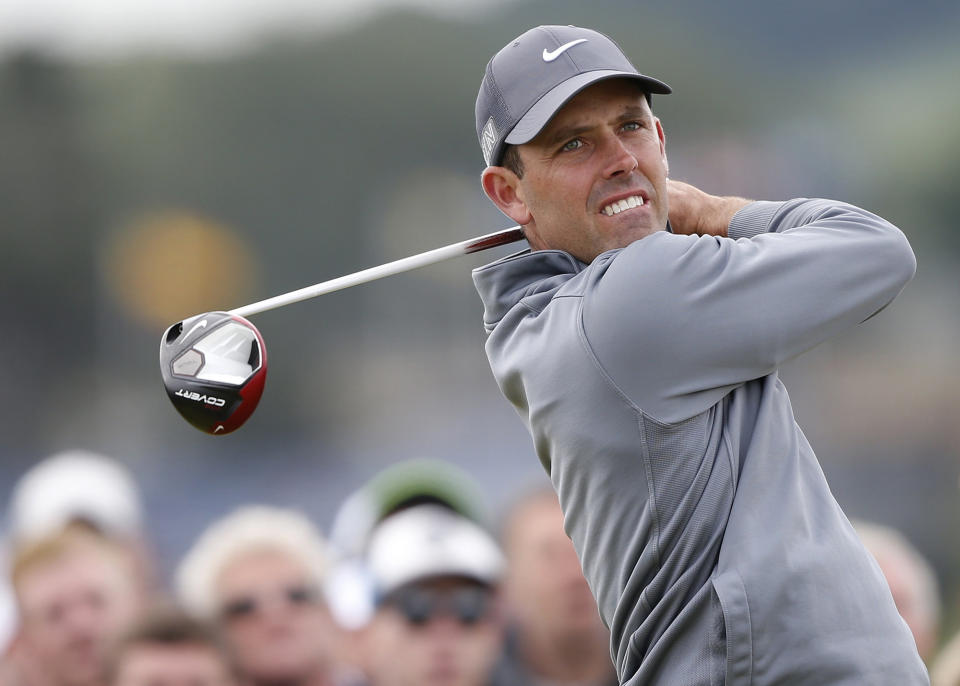
Schwartzel has a young daughter, and said that if he were single, didn’t want to have more children, or if the Olympics were being hosted by a country that wasn’t struggling with Zika virus, then he would be competing, he explained.
“If it was anywhere else, I'd play," Schwartzel said to AP. "I'd love to play in the Olympics."
Rory McIlroy
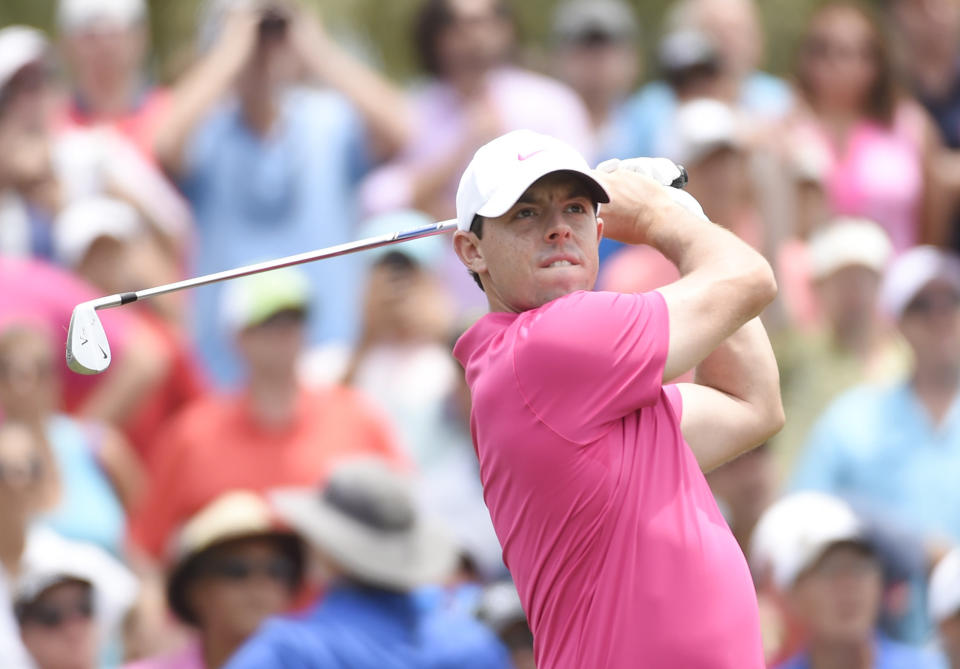
"After speaking with those closest to me, I've come to realize that my health and my family's health comes before anything else,” McIlroy said in a statement released in June. "Even though the risk of infection from the Zika virus is considered low, it is a risk nonetheless and a risk I am unwilling to take.”
Hideki Matsuyama

"Although I am excited that golf is returning to the Olympics and I realize that my potential success would help grow the game in Japan, I have come to the conclusion that I cannot put myself or my team members' health at risk," Matsuyama said in a statement.
"I have been getting information from all the concerned parties as well as my doctors about the situation in Rio, but I cannot be 100 percent sure about my safety, and my team's safety, from the Zika virus," he continued. “Additionally, my body has a tendency to react strongly to insect bites.”
Jordan Speith

But in past interviews, Speith has expressed concern about Zika virus and security threats in Rio.
Love HuffPost? Become a founding member of HuffPost Plus today.
This article originally appeared on HuffPost.

